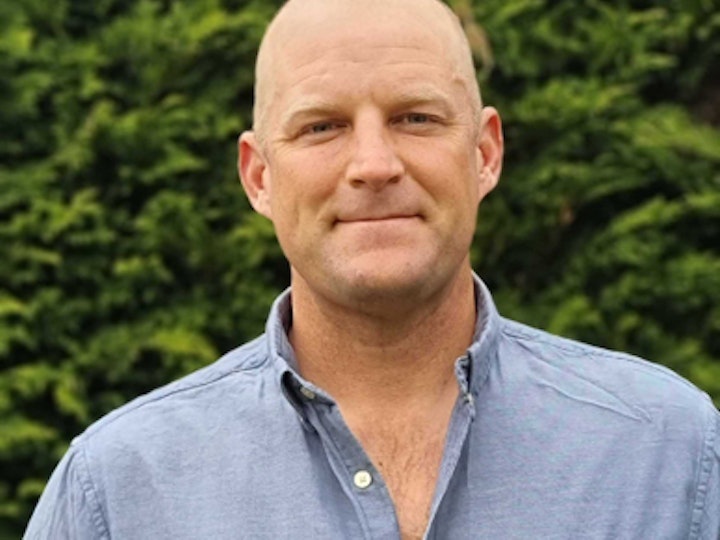Alex Partridge
The story of my success.

‘At 40 I’ve had to learn everything from scratch again – you can too’
It was the moment Steve Redgrave and Matthew Pinsent won Gold in the 1996 Atlanta Olympics that sealed the deal for 16-year-old, sports-mad Alex Partridge: ‘I just knew that rowing was exactly what I wanted to do with my life,’ he recalls. ‘I was completely focused on it and even chose my university, Oxford Brookes, based on the calibre of its rowing team.’
Alex’s dedication paid off and, after a series of successful medal-winning championships, he found himself stepping into the Olympic boat alongside his hero, Matthew Pinsent, to train for the 2004 Olympics in Athens. But tragedy struck: ‘It was a big acceleration, and I don’t think my body could cope. I suffered a serious injury – cracked ribs and collapsed lungs – so there was no way I could compete in the Olympic Games. It was a massive blow.’
His rowing career after that was something of a rollercoaster. After being undefeated for three years in the Men’s coxless Four, a loss in the last race of the pre-Olympic season saw him relegated to the Eight for the Beijing Olympics in 2008. ‘It was awful, but then it was awesome,’ he explains with a grin. ‘We were the underdogs, so nobody expected anything. Then we won Silver!’
However, it’s not the medals that stand out as much as the experience for Alex: ‘Rowing with a huge group of motivated people, all focused on the same purpose and goal, is a really cool journey.’
When that journey came to an end, things got tough for Alex.'Retiring from elite sport is really hard. I had no idea what I wanted to do with my life after rowing. I’d just got married and was ready to start a family, but I didn’t have a direction.'
‘The reality is that as an athlete you know your values based on your purpose in life – to win Gold at Olympic Games. It’s simple. You’re hyper-aware of who you are as an athlete, you know your body, but you’re not aware of who you are outside your sport at all.’
Enrolling on a part-time MBA at Henley Business School in 2011 – and then taking a year out to win Bronze for Team GB at the London 2012 Olympics – was Alex’s first step to finding a new path. ‘I learnt a lot as someone who wasn’t already working in business,’ he explains. ‘It prepared me for what it would be like.’
“Retiring from elite sport is really hard. I had no idea what I wanted to do with my life after rowing. I’d just got married and was ready to start a family, but I didn’t have a direction”
Yet after a period of working in sales and as a management consultant, Alex realised he hadn’t found his second calling after all. ‘In 2016, I reassessed completely and asked myself what I really wanted to do. I thought I knew what I should be – competitive, ambitious – and that achievement would come from making money, but it turned out that was too shallow for me. I thought about what I loved about rowing, and it was helping fellow teammates achieve great challenges. I realised I was happiest when helping others around me – whether that’s volunteering with children or running boot camps for parents in the park. To this day, my mantra is to inspire and be inspired.’
This epiphany was a turning point. ‘I realised I wanted to work in business with a wider social purpose,’ he reveals. ‘Then certain things from my MBA clicked into place and I remember thinking “Oh yeah, the people, purpose, vision, values piece. It all makes sense now.”’
‘I went to work at a local family-run lifestyle business and turned it into an enterprise business,’ he recalls. ‘I wouldn’t have been able to do that without my knowledge of entrepreneurship from the MBA.
‘I now work at financial-wellbeing platform Wagestream,’ he enthuses. ‘It’s one of the fastest growing startups in the world so I’m getting to see best practices from the MBA in action. For instance, we’ve ditched KPIs for OKRs (Objectives and Key Results), a Google practice I learnt at Henley. The culture and values have been built from the ground up so they’ve been shaped by the people and are so much more than a set of words on a page. When you work at a startup there’s a huge amount of pressure in the early days – you have to be like an Olympic athlete and do whatever it takes.’
Alex has two pieces of advice for anyone considering rebooting their career: ‘Always have a financial buffer in the bank. If you’ve got three to six months’ salary, you have the empowerment and autonomy to be able to change things and do what you want.
‘You can do what you love doing and eventually if you do it well, it will create the right success and fulfilment financially and personally. You’ll have to roll your sleeves up and get your hands dirty but don’t let anyone tell you that you can’t do it. I’m 40 and only nine years into my actual working career. I’ve had to learn everything from scratch again so you can too.’
Inspiring and inspired. Maybe Alex is his own Matthew Pinsent after all.
If Alex's story resonates with you, try our career workout to discover the best strategy for your next career move.